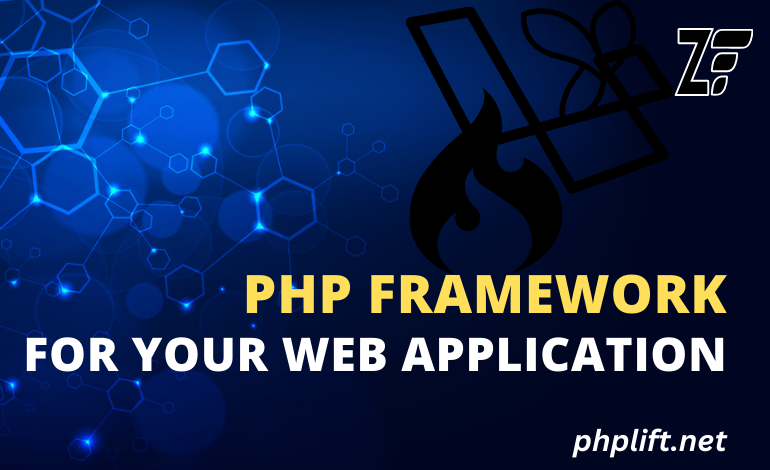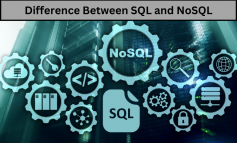In the ever-evolving world of web development, selecting the right PHP framework for your business’s web application is a critical decision. A well-chosen PHP framework can significantly impact the efficiency, scalability, and maintainability of your project. In this article, we’ll delve into the essential factors to consider when choosing a PHP framework and explore some of the prominent options available.
Understanding Your Project Needs
Before diving into the sea of PHP frameworks, it’s crucial to have a clear understanding of your project’s requirements. Consider factors such as the size and complexity of your application, the desired level of flexibility, scalability, and the specific features your project demands.
- Laravel: The Eloquent Choice for Elegant Applications
Laravel has emerged as one of the most popular PHP frameworks, known for its elegant syntax and robust features. If your project involves building sophisticated and modern web applications, Laravel might be the perfect fit. Its expressive syntax, an active community, and comprehensive documentation make it an excellent choice for developers seeking productivity and efficiency.
- Symfony: The Flexible Foundation
Symfony is a robust and highly flexible PHP framework that caters to both small and large-scale applications. It provides reusable PHP components, facilitating the development of maintainable and scalable web solutions. Symfony’s versatility makes it suitable for a variety of projects, from simple websites to complex enterprise applications.
- CodeIgniter: The Lightweight Contender
For projects that prioritize simplicity and performance, CodeIgniter stands out as a lightweight PHP framework. It offers exceptional speed and a straightforward learning curve, making it an excellent choice for developers who prefer a framework that stays out of the way while providing essential tools for efficient development.
- Yii: The High-Performance Framework
Yii (Yes, it is!) is a high-performance PHP framework designed for developing large-scale web applications. If your project demands speed, security, and a robust set of features, Yii might be the right choice. It follows the convention over configuration (CoC) and dons a modular architecture, allowing developers to pick and choose the components they need.
- Zend Framework: The Enterprise Solution
For enterprises seeking a PHP framework that aligns with industry best practices, Zend Framework is a solid option. It emphasizes flexibility and follows a component-based architecture, allowing developers to use specific components independently. Zend Framework is well-suited for large-scale projects that demand a high level of customization.
Evaluating Community Support
Read Also: Top Programming Languages in 2024
The strength of a framework often lies in the size and engagement of its community. A thriving community ensures ongoing support, regular updates, and a wealth of resources for developers.
- Laravel’s Vibrant Community
Laravel boasts a large and active community, contributing to its continuous growth. The community’s engagement is evident through forums, online tutorials, and extensive documentation. This support network can be a valuable asset for developers seeking solutions to challenges or exploring new techniques.
- Symfony’s Collaborative Ecosystem
Symfony’s community is renowned for its collaborative spirit and commitment to open-source principles. The framework benefits from the contributions of a diverse group of developers, ensuring its evolution and the availability of a vast array of bundles and extensions.
Documentation and Learning Resources
Comprehensive and well-organized documentation is crucial, especially for developers new to a framework. It can significantly impact the learning curve and ease the adoption of best practices.
- Laravel’s Enlightening Documentation
Laravel excels in providing clear and concise documentation, making it accessible for developers at all skill levels. The Laravel documentation not only explains the framework’s features but also includes detailed guides, tutorials, and examples that facilitate a smooth learning experience.
- Symfony’s Educational Resources
Symfony offers extensive documentation that serves as an educational resource for developers. The documentation covers everything from installation to advanced features, ensuring developers have the necessary guidance throughout the development process. Symfony’s commitment to education extends to its official blog, which regularly publishes insightful articles.
- CodeIgniter’s Straightforward Guides
CodeIgniter stands out for its straightforward documentation and easy-to-follow guides. The framework’s simplicity is reflected in its documentation, making it an excellent choice for developers who prefer a minimalistic approach without sacrificing functionality.
Performance Considerations
Performance is a critical aspect of any web application, and the chosen PHP framework can impact the overall speed and efficiency of your project.
- Laravel’s Optimal Performance
Laravel strikes a balance between features and performance, providing optimal speed for most applications. Its built-in Blade template engine, Eloquent ORM, and other components contribute to a seamless development experience without compromising performance.
- Symfony’s High Performance
Symfony is renowned for its high performance, thanks to its robust architecture and emphasis on optimization. The framework’s flexibility allows developers to fine-tune performance based on the specific requirements of their projects.
- CodeIgniter’s Lightweight Speed
CodeIgniter’s lightweight nature contributes to its exceptional speed. If your project prioritizes speed and simplicity, CodeIgniter’s minimalistic design ensures quick response times and efficient resource utilization.
Security Features
Security is paramount in web development. A robust PHP framework should incorporate built-in security features to protect against common vulnerabilities.
- Laravel’s Security Measures
Laravel prioritizes security and includes features such as CSRF protection, data encryption, and secure password hashing out of the box. Laravel’s commitment to secure coding practices provides developers with a solid foundation for building secure web applications.
- Symfony’s Emphasis on Security
Symfony follows best practices in web development, including security measures like cross-site scripting (XSS) protection and cross-site request forgery (CSRF) protection. The framework actively addresses security concerns and provides tools to enforce secure coding practices.
- CodeIgniter’s Built-In Security
CodeIgniter includes built-in security features, such as XSS filtering and input validation, to safeguard applications against common security threats. While its minimalistic design places more responsibility on developers, CodeIgniter provides the essential tools for building secure applications.
Community and Industry Adoption
Considering the popularity and adoption of a PHP framework within the development community and the industry can be indicative of its reliability and suitability for different projects.
- Laravel’s Rising Popularity
Laravel has witnessed a surge in popularity in recent years, becoming a preferred choice for many developers. Its elegant syntax, rich feature set, and developer-friendly experience have contributed to its widespread adoption across various industries.
- Symfony’s Strong Presence
Symfony has established itself as a reliable PHP framework with a strong presence in the development community. It is often the framework of choice for large-scale enterprise applications and projects that demand a high level of customization.
- CodeIgniter’s Legacy
CodeIgniter, with its legacy in the PHP framework landscape, continues to be a popular choice, particularly for smaller projects and developers who value simplicity and performance. Its long-standing reputation adds to its credibility within the community.
Conclusion
Choosing the right PHP framework for your web application is a crucial decision that requires careful consideration of various factors. Laravel, Symfony, CodeIgniter, Yii, and Zend Framework each offer unique advantages, catering to different project requirements and developer preferences.
Ultimately, the decision should align with your project’s specific needs, the expertise of your development team, and your long-term goals. Consider factors such as performance, security, documentation, and community support to make an informed choice that propels your business to new heights in the world of web development.




Leave a Reply